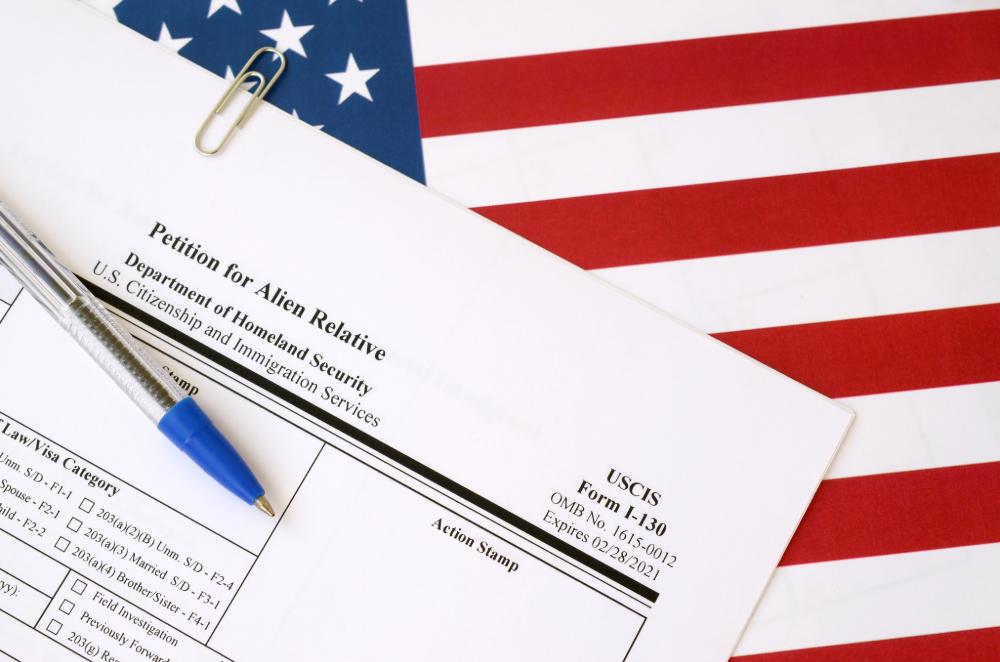Understanding Timing When Filing Form I-130
When you petition the U.S Citizenship and Immigration Services (USCIS), you take the first step toward securing a green card for your relative. The length of time between your filing Form I-130, Petition for Alien Relative, and the approval of the petition will require patience and vigilance. Making sure you understand the process and what you may need to do can help keep the approval time as short as possible.
Current Average Processing Times
Average processing times vary based on the category of the person for whom the petition is filed. Petitions for Immediate relatives are given preference over petitions for family preference relatives:
| CATEGORY | AVERAGE PROCESSING TIME for 80% (2025) |
| Immediate relatives (spouses, parents, and unmarried children under 21) of U.S. citizens | 67.5 months |
| Immediate relatives (spouses, parents, and unmarried children under 21) of permanent residents | 96.5 months |
| Unmarried children over 21 of U.S. citizens or permanent residents | 134.5 months |
| Brothers and sisters of U.S. citizens | 164 months |
| Married children of U.S. citizens | 152.5 months |
Processing includes the following steps:
- After filing an I-130, the petitioner will receive, in approximately 2-4 weeks, a Form I-797C, Notice of Action, officially acknowledging receipt of the petition. This notice contains a 10-digit receipt number that can be used to check the status of your case. (If no such notice is received within 4 weeks, the petitioner should make a case inquiry.)
- The USCIS will review the petition. They will give preference to petitions for immediate relatives. They can deny the petition at any time if they determine that the petitioner has not demonstrated eligibility. They may also issue a Request for Evidence to confirm eligibility.
- Approval for immediate relatives is likely to be issued earlier than for other categories.
Factors That Influence Processing Time
Processing times for Form I-130 depend on several factors. Understanding these factors and how they affect timing will enable you and your relative to plan appropriately, including when it is sensible to check on the status of your petition or take follow-up action.
- Accuracy in filling out Form I-130 – Ensuring you file the form correctly will save time and avoid aggravation. More than 1 in 10 petitions are rejected due to incorrect filing. To ensure accurate filing, consider hiring a law firm experienced in immigration and citizenship matters.
- The relationship to the petitioner – Petitions for immediate relatives (spouses, unmarried children under 21, and parents of the petitioner) are given priority and processed more quickly.
- Green card quotas for different categories – Because no green card quotas exist for immediate relatives, I-130 forms are processed more quickly for them.
- Requests for evidence – To avoid unnecessary delays, make sure you provide adequate proof of your eligibility on your initial petition. If the USCIS requests additional evidence, reply promptly and thoroughly to the request.
- Background checks – By providing complete and accurate information on your petition, you will minimize the time for the USCIS to perform background checks.
- How soon you file – Wait times have trended longer, and that trend may continue under the current administration.
How to Check Your Case Status and Processing Time
You can check your case status using a tool on the USCIS website. You will need to supply the 10-digit number on your Form I-797C, Notice of Action. The site also provides other helpful information, including a processing time tool.
Options When Your Petition Is Outside Normal Time
Suppose your petition is taking longer than the normal processing time, as indicated by the USCIS processing time tool. In that case, you can take several steps to determine the reason and attempt to expedite the approval of your petition.
- Submit a Case Inquiry on the USCIS website using the 10-digit receipt number. You’ll also need to provide the date you filed, the form (I-130), and your email address. The USCIS will respond.
- Submit a Service Request (SRMT) on the USCIS website for an interview appointment. You will need to provide the same information as you would for a Case Inquiry. If your request is granted, you can provide information that will help expedite the approval process.
- File an Expedite Request with USCIS.
- If none of the first three actions yield results, consider seeking assistance from the Office of the CIS Ombudsman. This office operates independently from the USCIS to help resolve immigration issues.
- You can also ask for help from your congressional representatives.
- Hire an experienced immigration attorney to file a Writ of Mandamus, which compels an agency (the USCIS) to complete a function (Form I-130 processing) that it has failed to do.
Practical Tips to Prevent Delays
Throughout the process, make sure you have done everything you can to make it easy for the USCIS to process your petition:
- File a complete, accurate Form I-130 with abundant supporting documentation.
- Pay the correct fee(s) using the current edition of the relevant document.
- Respond quickly and thoroughly to Requests for Evidence (RFEs).
Recent Trends and Efforts to Reduce the Backlog
The comprehensive USCIS FY2023-2026 Strategic Plan includes numerous initiatives that are expected to help expedite Form I-130 processing. These include the following:
- Expand its capacity to adjudicate submissions by growing its workforce, focusing on attracting, recruiting, training, and retaining employees.
- Develop a unified strategy for digitizing paper documents submitted to USCIS.
Stay Patient but Stay Vigilant
If you have done everything you can to ensure that your Form I-130 petition is processed as quickly as possible, you will still need to be patient. Despite your efforts, you will likely have to wait for years for approval. At the same time, ensure that you respond to requests promptly and take action if you do not hear back within the expected timeframe.
Reach Out to a Skilled Immigration Lawyer
If you need knowledgeable legal help, contact Urena & Associates, a premier, full-service law firm with a history of success in representing clients in a wide array of immigration and citizenship matters. You can reach out to us online or via telephone at 1 (888) 817-8599.

